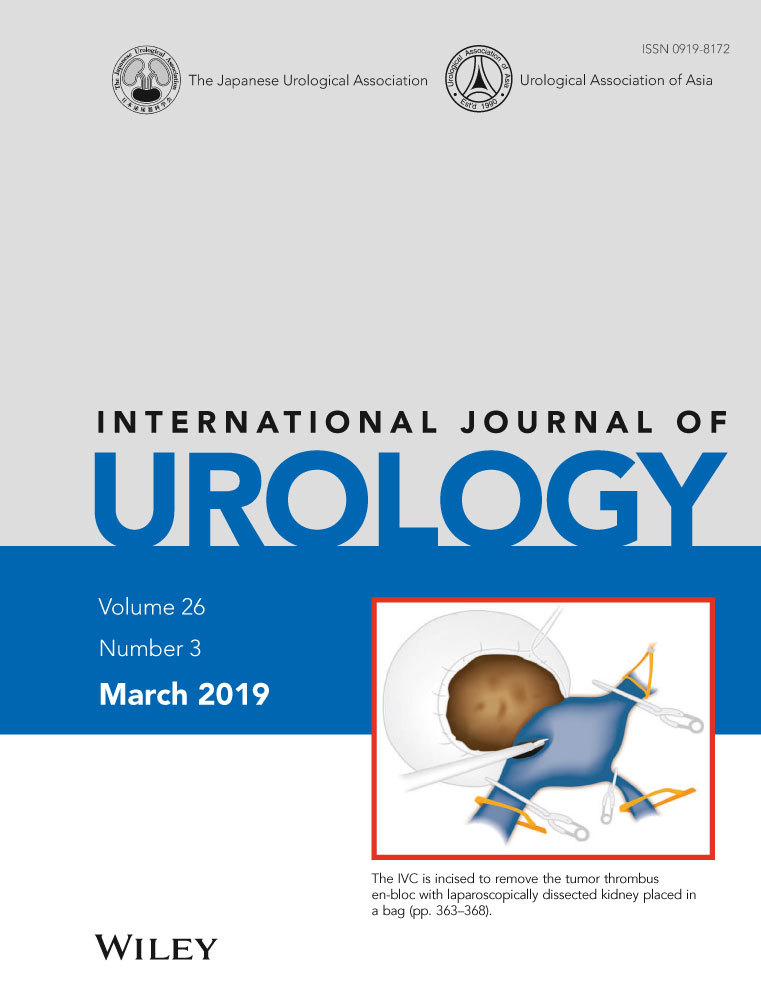Treatment of male stress urinary incontinence using autologous adipose-derived regenerative cells: Long-term efficacy and safety
Abstract
Objectives
To investigate the long-term efficacy and safety of periurethral injection of autologous adipose-derived regenerative cells for the treatment of post-prostatectomy stress urinary incontinence.
Methods
A total of 13 patients with persistent stress urinary incontinence after prostate surgery (radical prostatectomy, 10 patients; holmium laser enucleation of the prostate, three patients) underwent periurethral injection of adipose-derived regenerative cells and were followed up for >4 years. A 24-h pad test was carried out for four consecutive days in each evaluation period, and changes in the mean daily leakage volume during the 4 days from baseline to 60 months after treatment were evaluated.
Results
The mean follow-up period was 69 months (range 55–72 months). The mean leakage volume/24 h in all patients changed from 260.7 g to 152.7 g. Urinary incontinence progressively improved up to 12 months after treatment in 10 patients, who maintained improvement up to the final assessment, with the mean daily leakage volume decreasing from 281.5 g to 119.0 g (reduction rate 57.7%). The other three patients showed no improvement at 1 year and at the final assessment. After the perioperative period, significant adverse events or prostate-specific antigen increase were not observed during long-term follow up.
Conclusions
The present findings suggest that periurethral injection of autologous adipose-derived regenerative cells is a safe and feasible treatment modality with long-term efficacy for patients with male stress urinary incontinence caused by urethral sphincter deficiency.
Conflict of interest
None declared.




